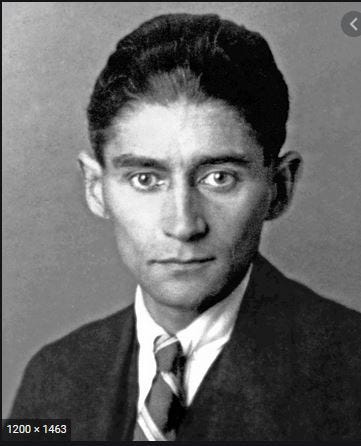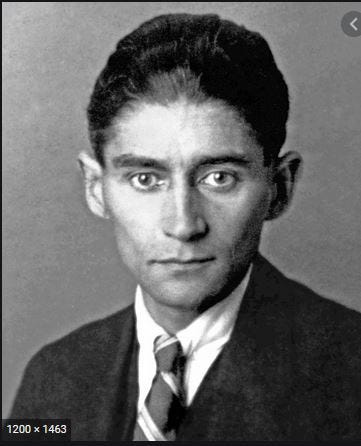The problems of authenticity under capitalism
Artists and writers in capitalism
In the last chapter of “Capitalism, Alone”, I discussed a number of changes in the private life that are introduced by greater wealth (and thus ability to procure commercially services that were in the past provided within family) and the “invasion” of capitalistic relations into our private lives. One of the issues discussed there is the diminished usefulness of family in highly commercialized societies and an obvious decline in family size (or rather expressed preference for solitary living) in more affluent societies.
Here I want to discuss another issue where we face a fundamental contradiction between the principles according to which hyper-capitalist societies are organized and what may be considered desirable outcomes. The topic is authenticity in arts, and to a lesser degree, in social sciences. When we deal with reproducible goods, the advantage of capitalism is that profit can be made only if somebody else’s needs are satisfied. Thus two objectives, personal needs of a buyer and the profit goal of the producer, are aligned.
But this is not the case in arts. The reason is that arts thrive on, or require, individualism, uniqueness and authenticity. When you try to guess public’s preferences in shoes, and produce such shoes, this is good and useful. But when you try to guess public’s preference in literature, films or paintings, it may, if you guess them correctly, make you rich, but from the point of view of artistic creation, it could very easily be fake and ephemeral. In arts, we are interested in an individual’s view of the world, not in an individual’s ability to ape public preferences or prejudices.
I will illustrate it with some extreme examples. When we read Kafka’s Diaries, we are sure that they represent his own true and unvarnished take on the world: he wrote them for himself, never thought they would be published, and explicitly asked that they be burned. The same is true, for example, with Marx’s 1848 manuscripts which were saved largely by accident and were published more than a century after they were written. Whether one likes or not either is a matter of taste and interest. But there is no doubt that they are authentic works of these two people.
But when we watch a film whose ending was tested on different audiences to produce the ending that most people would like to see, and pay for, there is—likewise—no doubt that the author’s role in such an enterprise is diminished, and in some cases totally obliterated. The same is true for works of fiction. If they are written with the main objective of money-making they have to play on popular preferences and to present as little of author’s personal opinions (which may be unpopular) as possible. Why should one then, if in search of new or challenging ideas, read such novels?
We thus face a very peculiar inversion of the roles. Authors try to lose their authenticity in order to please the audience so that they can maximize income. And the only value of such an oeuvre resides in that it allows us to gauge public preferences—not in any own (inherent) value.
This problem exists in most artistic creations under capitalism. Everyone can give many examples, going perhaps from Steven Spielberg to the writers of innumerable (and readily forgotten) bestsellers.
It can be argued however that artists were always producing for i potenti. Their works were commissioned and expressed little of their own personality except in the parts which had to do with skills (most obviously in painting and sculpture where the topic would be given to the artist, and he may be distinguished only by his skill in executing it). This is a good point except that art producers themselves had not then fully mastered commercialization to nearly the same extent as they have today. It was then an “artisanal” commercialization compared to today’s mass commercialization.
Topics are now chosen by professionals in function of what they believe will sell: I conversed only once with a book agent, and when he began telling me what I should be writing, it was enough to dissuade me from ever talking to another one. The texts are edited and reedited to please the audience and to avoid lawsuits. Most extraordinary, authors of works of fiction attend workshops where their voice is additionally muted as they are taught how to write like everybody else.
This all makes sense if the objective is solely profit. In fact, one of the reasons I was told it is good to have an agent is because he can extract the best deal for the author from the publisher. But here is the hitch: he can extract the best deal only by stifling the authenticity of the author.
These are some areas of human endeavor where excessive commercialization is not likely to produce best results. The problem has no solution because it derives from the fundamental contradiction between a system where profit is to be made by pleasing buyers, and a system that puts the premium on individualism which, by definition, is not shared by many.



I'm not certain I would frame this as "authenticity" vs. "inauthenticity." The concepts are too slippery to be of much use. A more interesting/worrying point might be to look at who is making art or able to make art today. As working class participation in art-making declines, and the places where one can live "the art life" are long gone, is it just leisure for the wealthy? Is that all it ever was?
I’m actually reading Jeffrey C.Goldfarb book ‘On cultural freedom An exploration of public life in poland and America’ the book is dated written in 1980 I think but more interesting as a contemporary account.
It talks a lot about the ways that artistic freedom in more subtly controlled in americas capitalist system where appeasing taste makers is critical to success.
Polands culturally freedom moved about a lot depending on the government and allowed for subtle ‘winking’ government critiques (which were even popular and consumed by party bureaucrats even if not publicly) and a lot of artistic risk (as success wasn’t really measured) but was very harsh on things seen as ‘anti communist’ or just socially undesirable.
This is because of the division between public and private opinions where both can be held, even if contradictory within Polish society at the time. So the subtle critiques as long as they were publicly not anti communist were accepted and actually a useful gauge for opinion.
Bit of a tangent here but yeah it talks about how rather then the literal censorship in poland which was routine and could be subtlety got around in USA artists are forced into a self censorship. They just won’t get played, shown or noticed.
It certainly doesn’t portray the polish system as better for artists but simply breaks down the various and different pressures that prevent artists being free in what they say and how they say it.
I think this is related and perhaps an interesting deviation to your point which I broadly agree with.
I always think back to K’naan who tanked his career after accepting agent/label advice. When talking about this period he also uses the term authenticity! Even if I agree with the other reply’s that this is a messy term that is somewhat loaded.
https://www.nytimes.com/2012/12/09/opinion/sunday/knaan-on-censoring-himself-for-success.html